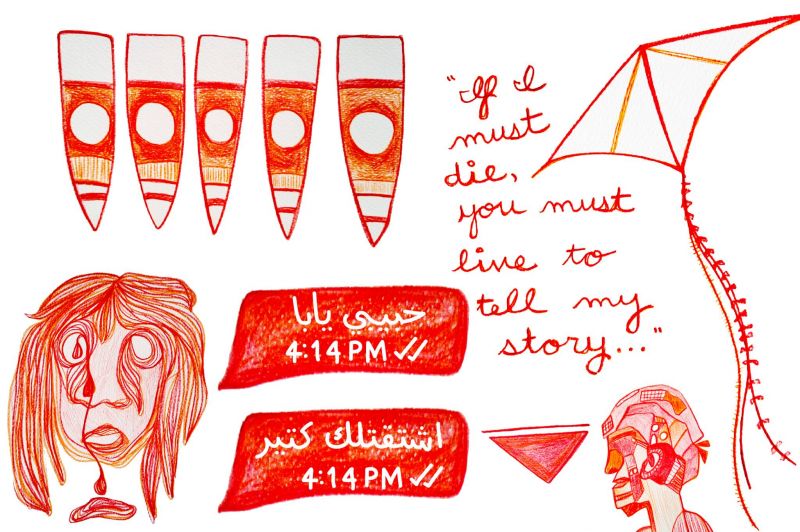
Illustrations by Jaimee Lee Haddad.
End of September-first week of October, 2023
Beirut. I’ve been here for about a year so far to study for a master's degree in Human rights and democracy. Back home in Khan Yunis, Gaza, are my mother, father and two sisters.
I’ve just defended my master’s thesis, anxious, overthinking an unknown future.
Friday night, Oct. 6 I spent sitting with two of my closest friends at the Mar Mikhael stairs to think about what to do with my future.
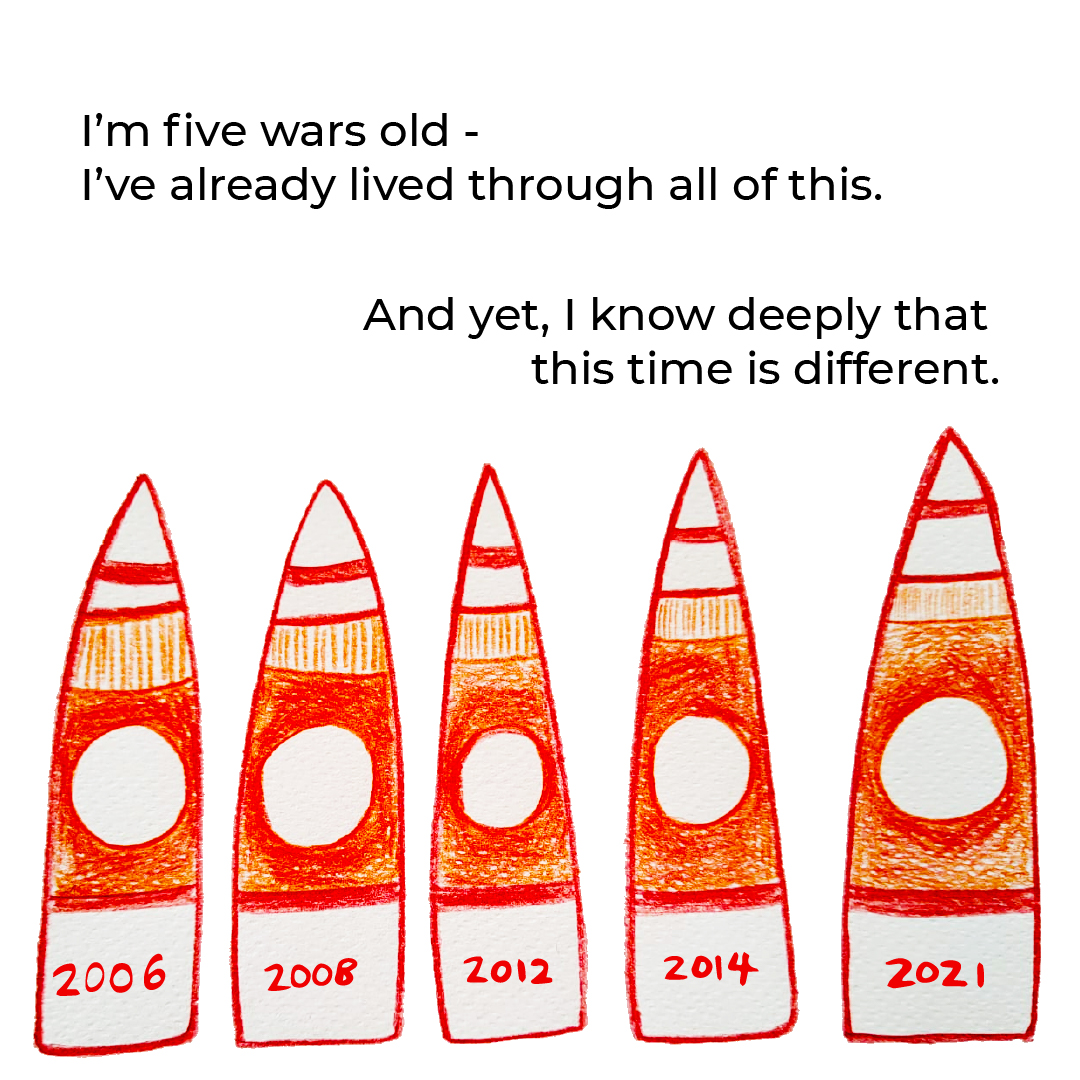
Oct. 7, morning
I wake up very late, as usual on Saturdays, wondering about the tons of messages I’ve just gotten from my family and friends. They are telling me that they are okay.
All I feel when I check the news is: “Not again!”
Not again with the pain, not again the loss, stress, destruction, losing hope. I’m five wars old — I’ve already lived through all of this.
And yet, I know deeply that this time is different.
Oct. 7, afternoon
A few friends and I give out sweets and baklawa in Hamra, unaware of what is to come.
I feel proud — not politically — but in the sense that, for a second, my feet are on Yaffa Beach, and I’m under the sunlight.
October, month of pain
Pain:
To feel that in any second you might lose your loved ones.
To eat a meal while my family is under bombs feels like a crime.
I cannot smile or take a normal shower
I begin to lose weight.
I see Mama’s face in my dark room when I go to bed.
I fear, more than anything, losing my little sister Solaf. Solaf is my sister, but when she was born, I was already 13 years old — I helped raise her. I consider her my daughter.
What pain can I handle if I lose my daughter?
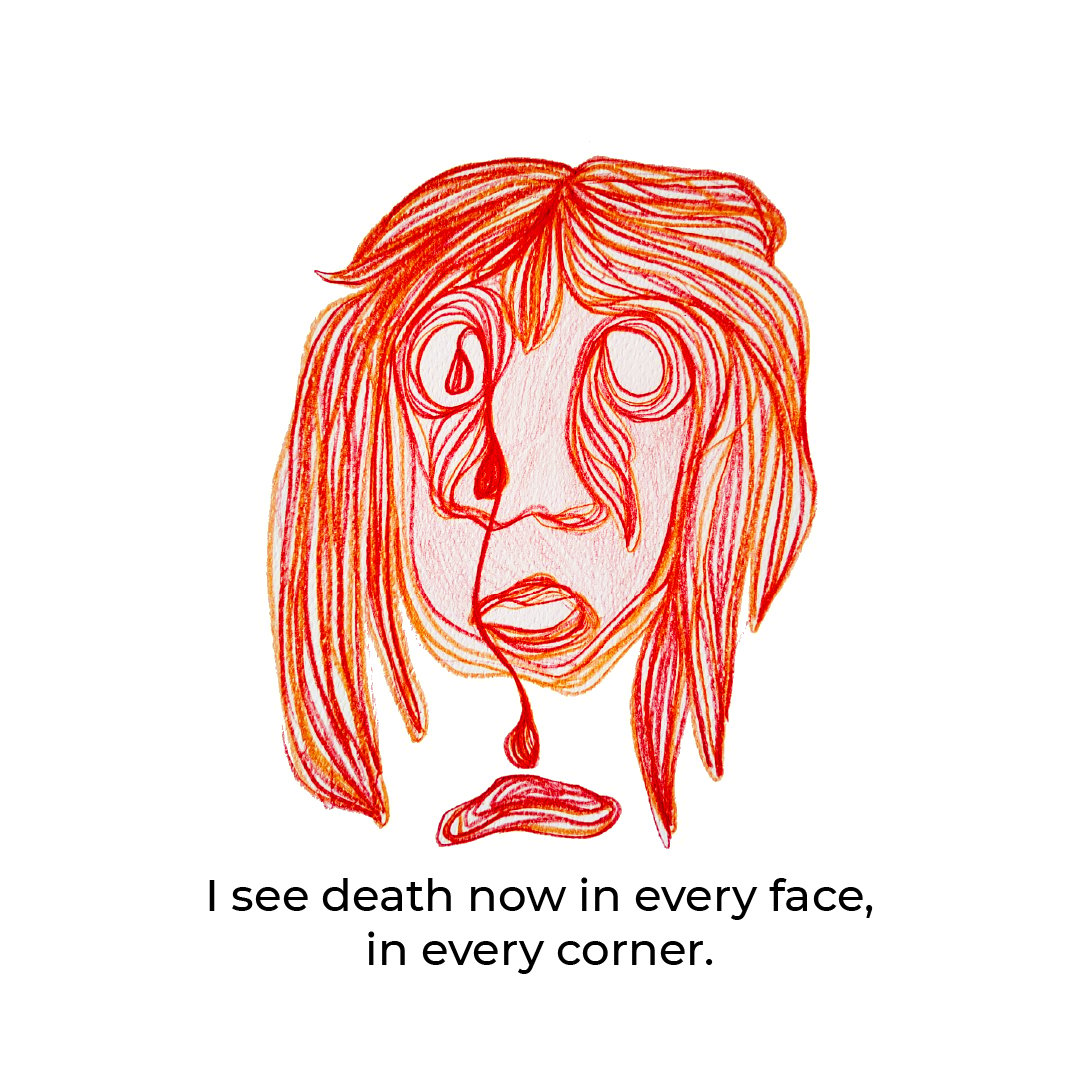
In October, I go through two basic motions: I look for a job, I join a protest to stop the genocide.
I remember, too. When I was a teenager, I used to fight all the time with Mama. When the war started, I wanted to go back in time and spend happy moments with her. I regret every moment now; I might lose her in any second.
October is the first time I realize that my parents will, at some point in life, die!
This genocide brings back the idea of death to my mind. I’m a person in love with life: I want to experience everything. Yet I see death now in every face, in every corner.
Everything changes.
Oct. 14:
Yousef was my very good friend. We met when we were participating in the “We Are Not Numbers project” in Gaza and from being in colleges there, we established a friendship with a group from that project.
I remember a specific conversation when we, as a group, were discussing feminism. He said he supported the feminist cause.
Yousef was killed in a bombing on his house.
November:
The protests start to get more organized, with specific goals: stop the genocide and open the Rafah crossing. The south of Lebanon is also under fire, intensifying the political debate in Beirut.
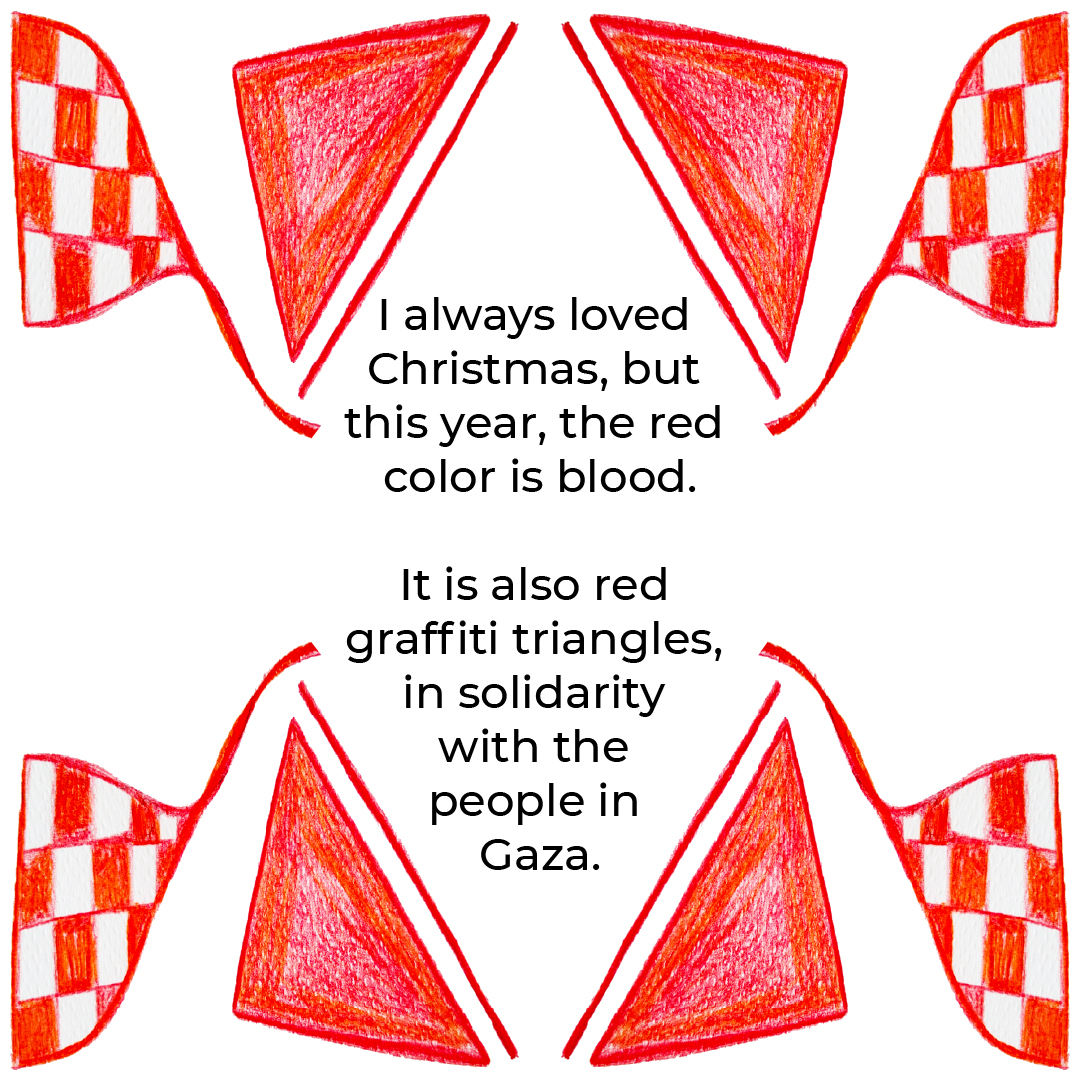
When November comes, all of a sudden I see red everywhere. Red bows, red dresses. Beirut is getting ready for Christmas.
I always loved Christmas, but this year, the red color is blood.
It is also red graffiti triangles, in solidarity with the people in Gaza.
It is seeing my university, where I spent the most beautiful four years of my life, being destroyed and falling down over a painted screen. To me, it is the destruction of our future, forbidding generations from exercising their right to an education.
I count my other losses:
Losing my friend Yousef.
Losing my friend Mohamed Abu Samra.
Mam, Hala and Solaf getting evacuated to Egypt.
Baba, still stuck in Rafah.
December
It’s official: Beirut dons her red dress to celebrate Christmas. I never blame anyone for celebrating, but personally, I find it hard to celebrate this year.
Next is New Year’s.
New year, new me, new goals, new, new, new.
“New” is not for me: I keep the pain, I still suffer. My friends are still starving, our memories still being destroyed.
Many civilian professionals are killed in the onslaught. Among them is Dr. Refaat al-Areer, poet and professor.
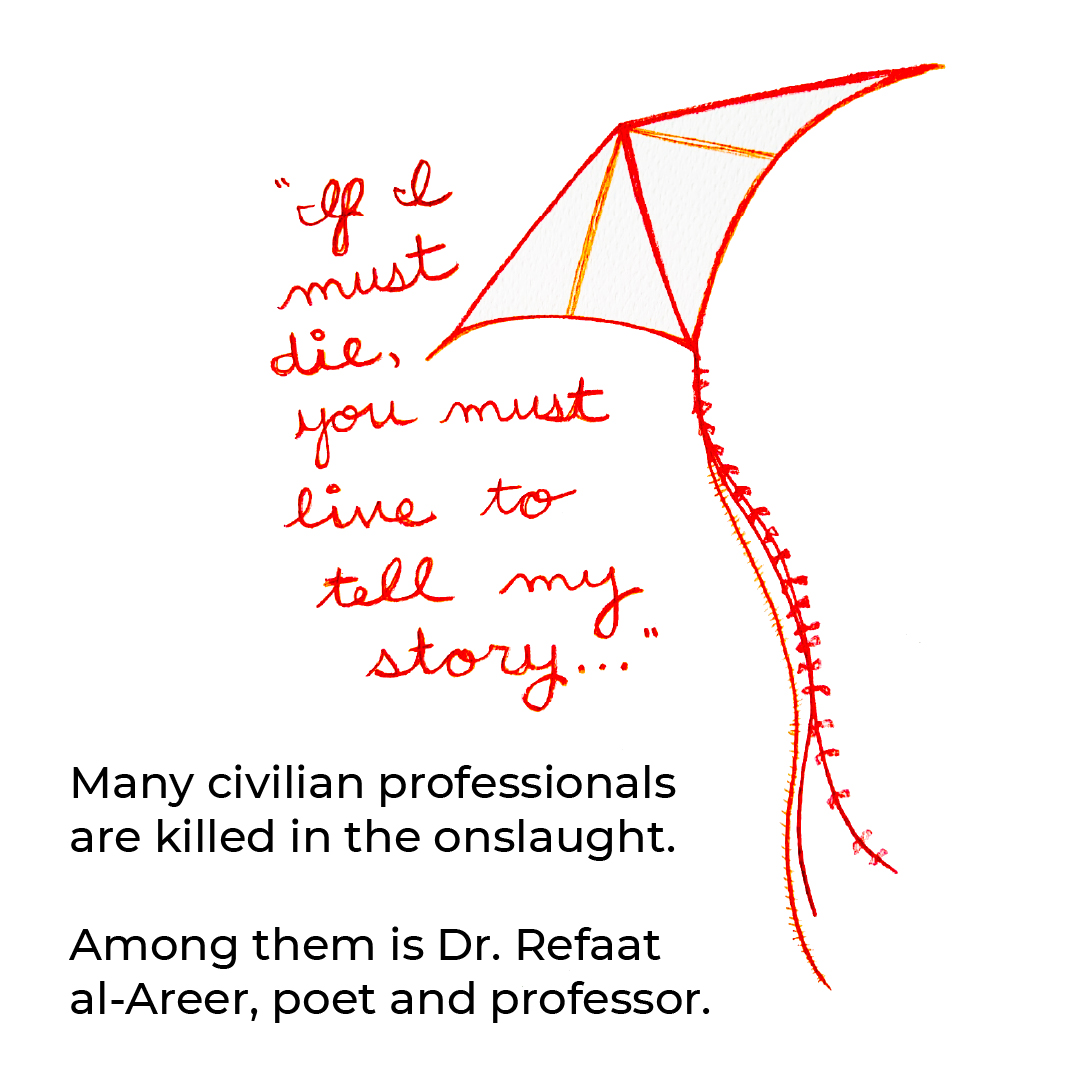
January
January starts its days heavy.
Hours and hours spent applying for jobs. One time, in my apartment, I spent four hours applying, and I took a break to check the news. I saw a video of a bombing on Rafah, in the area where my father has been living.
I check the video to see a man in his fifties, injured: he looks like my father. The similarities between him and Baba are very close, all of them, even the clothes.
For those first few seconds, I freeze, and taking a breath seems like the hardest thing to do. Everything turns to black.
In my mind, Baba doesn't die, and in my mind, there are too many memories we have yet to build. Will I not now share with him the experience of mountain climbing? Will he not walk me in my wedding? I’ve always imagined how my future boyfriend is going to suffer since I am Baba’s favorite daughter.
All of a sudden, these moments collapse.
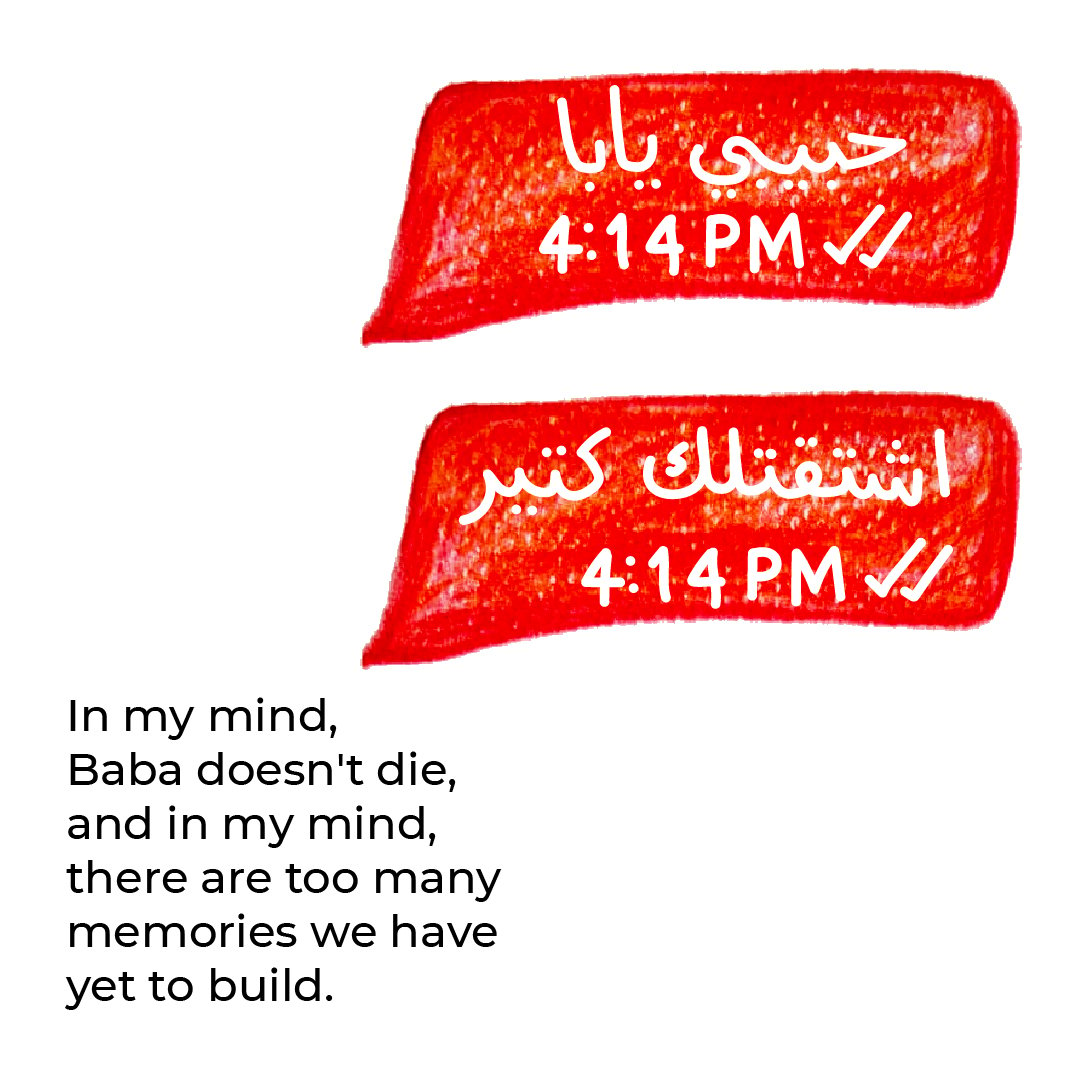
The man in the video isn’t Baba, I later learn from my brother — but what if he was?
What has anyone has done wrong in life is to watch their loved one take their last breath over a video? Afterward, I promise myself that I will not watch the videos coming from my beloved city.
February:
My brother and I set up a GoFundMe campaign to evacuate Baba. Traveling from Gaza is so hard and very expensive — imagine during an ongoing conflict. Still, we have a little kind of hope.
February is the hardest. The tiny hope I used to hold, I start losing, believing that war will never end. It will be an endless suffering.
Since the war started, I’ve faced mental breakdowns from time to time, but starting from February, my mental health was always down.
I lost a lot of weight.
Now my brain refuses to believe that all of this is real.
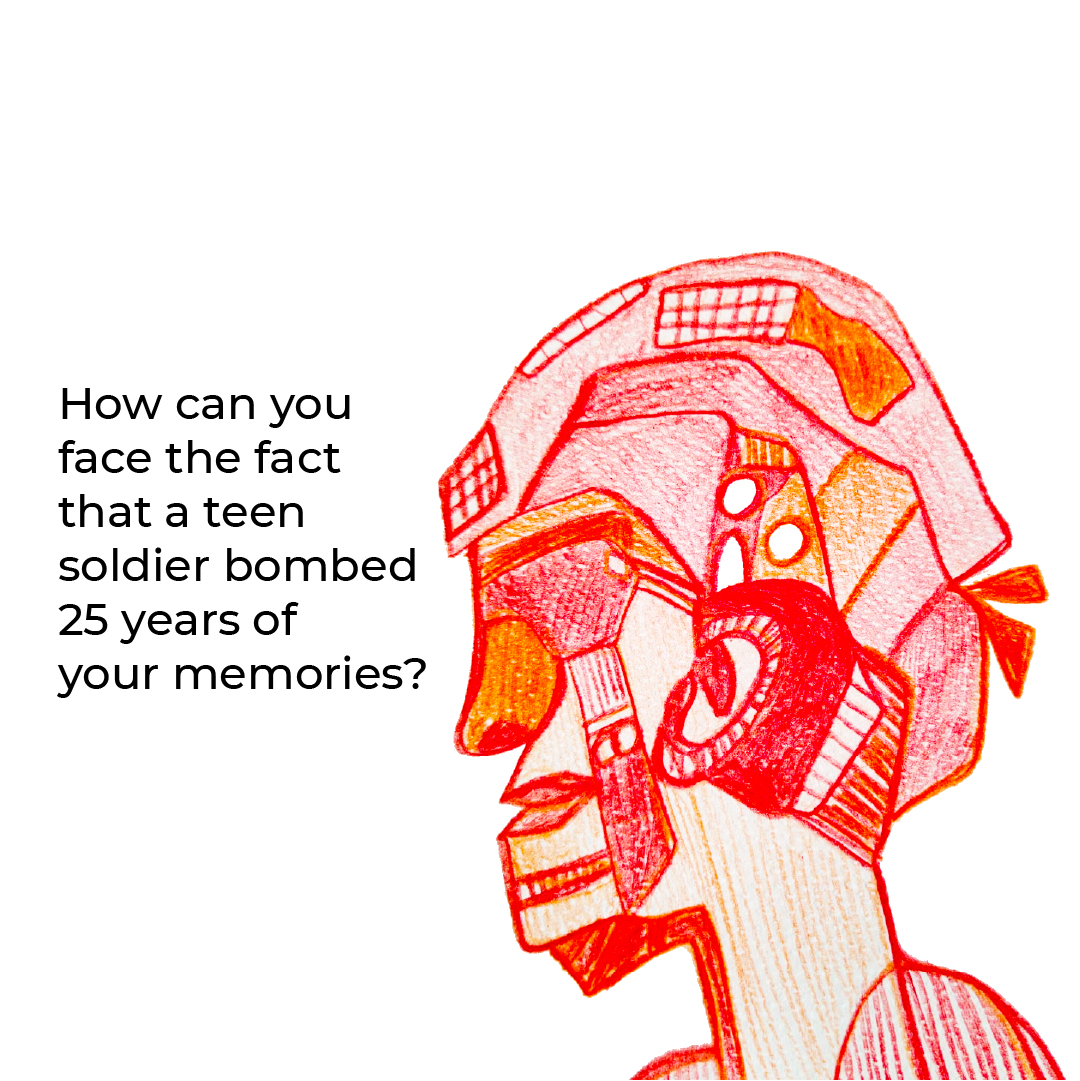
All of this is only a nightmare, and I will wake up, finding family in our beautiful home, on a very normal day, where we used to wake up early to head school, university and work. To be back in the afternoon, having lunch together and watching TV, and baking orange cake in the evening, to fill our home with the smell of vanilla.
That home no longer exists. Some of our neighbors in Khan Yunis tell us that our entire neighborhood has been destroyed. We have no specific information about what happened to our house.
How can you face the fact that a teen soldier bombed 25 years of your memories?
I refuse to believe. In my mind, our place is still standing waiting for us to come back and fill it with many loud laughs.
Despite it all, at some point, I turn all of the negative energy into sports, especially running. Especially on Beirut’s corniche.
And, for now, it worked!
Start feeling better.